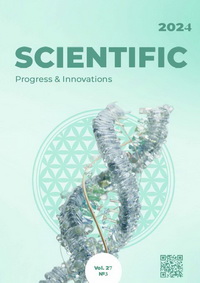The effect of chronic kidney disease on the cardiovascular system in dogs: mechanisms of the development of cardiorenal syndrome
DOI:
https://doi.org/10.31210/spi2024.27.03.13Keywords:
chronic kidney disease, cardiovascular system, cardiorenal syndrome, dogs, calcification of coronary vessels, oxidative stress, inflammatory processes, anemia, electrolyte imbalanceAbstract
Chronic kidney disease (CKD) is a serious pathology that affects not only the function of the kidneys, but also the cardiovascular system in dogs. Many scientists have investigated the relationship between CKD and the development of cardiorenal syndrome (CRS), which occurs due to the interaction between disorders in the kidneys and the cardiovascular system. In particular, decreased renal function, characterized by increased levels of serum urea nitrogen (BUN) and creatinine, as well as reduced glomerular filtration rate (GFR), contributes to the development of CRC. The article presents a comprehensive review of the effect of chronic kidney disease (CKD) on the cardiovascular system in dogs, emphasizing the mechanisms of the development of cardiorenal syndrome (CRS). Chronic kidney dysfunction has a significant impact on the cardiovascular system, often accompanied by an increased risk of heart failure. The main indicators of decreased renal function in dogs with CKD are increased levels of serum urea nitrogen (BUN) and creatinine, as well as a reduced glomerular filtration rate (GFR). Hyperphosphatemia and impaired calcium metabolism lead to coronary calcification, which further worsens the condition of the cardiovascular system. Anemia, which often accompanies CKD, increases the risk of heart failure due to increased hypoxia and metabolic disorders in the heart. An overview of methods of complex treatment of KRS, including timely diagnosis, electrolyte balance control, management of inflammatory processes and oxidative stress. Established patterns of occurrence Cardiorenal syndrome depending on the procreation of dogs, their sex and weight. The key mechanisms of KRS pathogenesis are considered, including inflammatory processes, oxidative stress and electrolyte imbalance. The contribution of activation of the renin-angiotensin-aldosterone system in chronic kidney disease to the development of cardiac pathologies is described. The article presents the results of regression analysis of CRS risk markers in dogs with CKD, which helps to improve the diagnosis and treatment of this condition. The study examined the relationship between CKD and heart disease in dogs, emphasizing the importance of anemia and electrolyte imbalance in the development of cardiorenal syndrome. The obtained results on the mechanisms of cardiorenal syndrome development in dogs with chronic kidney disease can be useful for further research and effective treatment of this pathological process.
Downloads
Published
How to Cite
Issue
Section
License
Copyright (c) 2024 Scientific Progress & Innovations

This work is licensed under a Creative Commons Attribution 4.0 International License.

 Creative Commons Attribution 4.0 International Licens
Creative Commons Attribution 4.0 International Licens